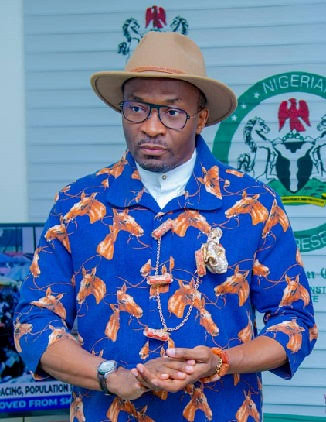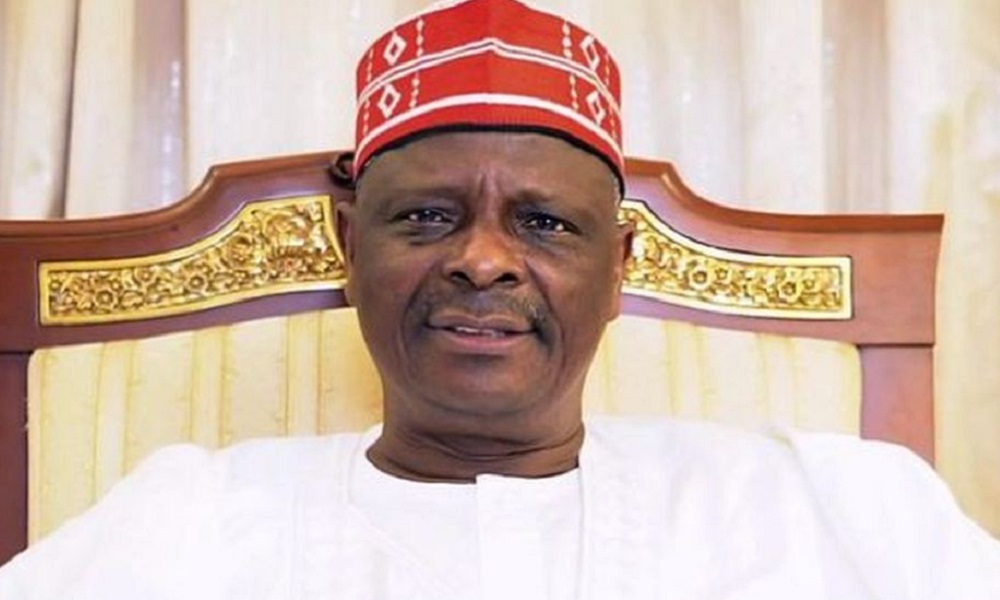News
IPU: Deputy Speaker Kalu Advocates Stronger Recovery Strategies for Post-Conflict Africa

News
It’s A Lie Not Foreign Herders Responsible for Plateau,Benue, Other Crises- Miyetti Allah Declares

… insists it’s political
By Kayode Sanni-Arewa
The National Secretary of the Miyetti Allah Kautal Hore Fulani Socio-cultural Association, Saleh Alhassan, has claimed that politicians are the real cause of the crisis in Plateau State, not herders.
He made the claim on Friday during an appearance on Channels Television’s The Morning Brief, where he spoke about national security and the farmer-herder conflict.
He spoke against Defence Headquarters comments that foreign herders were behind attacks in Plateau, Benue, and other parts of the country.
Recall that the Director of Defence Media Operations, Major General Markus Kangye, made the statement on Thursday during a media briefing in Abuja.
However, Alhassan dismissed that explanation, calling it “misleading” and “politically motivated.” He said: “The notion and narrative of foreign herders is a distraction. It is a continuation of efforts to deny Nigerian herders their citizenship and a major challenge to achieving peace, especially concerning the farmers-herders conflict.”
On the Plateau crisis, he said: “I schooled and grew up in Plateau, so I know the root causes of these crises. The recent conflict in Bokkos, for instance, started over a motorcycle theft, not grazing or land use. But suddenly, every conflict is labelled a farmer-herder clash.”
He also stated: “If Governor Caleb Mutfwang wants to be sincere, he knows this conflict is political.
There is a clear agenda to expel herders from Plateau State. His political godfather, former Governor Jonah Jang, has been a driver of that narrative, and it has been renewed again.”
Speaking further, he said: “Peaceful herders have no business with banditry. But when governors abandon conventional law enforcement and empower ethnic militias, injustices are committed against herders. In such a setting, herders resort to self-help.”
“We are heading into another election season, and suddenly conflicts are being reignited and mischaracterised as herder-farmer clashes. In Plateau, for instance, this is not even the cropping season, yet such narratives are being pushed. These are pretentious statements. Treat criminals as criminals, treat bandits as bandits.”
Our herders are not armed. What we have are armed bandits in our forests, who are mistakenly or deliberately labelled as herders. We’ve lost many herders and thousands of cattle, yet we’re still accused as the perpetrators.”
“Most of the images we see of armed herders are not even from Nigeria.” And concluded: “There are no foreign herders in North Central Nigeria. What exists in some border communities are bandits and criminals, not genuine herders.”
He accused authorities of ignoring the suffering of herders.
It’s always convenient for security agencies to blame us to avoid engaging in deep conversations that address the root cause of these issues. Let them parade those arrested and show us their nationalities. It’s not just about Fulfulde, Fulani or the language they speak.”
He admitted the difficulty of tracking herders, saying their nomadic lifestyle makes it hard, even though the association keeps a register.
To resolve the issue, Alhassan said integration of livestock across the country should be implemented.
His comments come amid renewed violence in Nigeria’s Middle Belt, including recent attacks in Bokkos and Bassa LGAs in Plateau State, which claimed over 100 lives in April 2025
News
Why JAMB is withholding 39,834 UTME results

By Kayode Sanni-Arewa
The Joint Admissions and Matriculation Board is withholding 39,834 UTME results after uncovering irregularities, with over 80 suspects currently being interrogated nationwide during the 2025 examinations.
The Joint Admissions and Matriculation Board (JAMB) has announced that it is withholding 39,834 results from the 2025 Unified Tertiary Matriculation Examination (UTME).
The results are being withheld due to several cases of exam malpractice.
This update came as the board officially released the results of the 2025 UTME. It had earlier reported that around 1.9 million candidates participated in the exam across Nigeria.
According to JAMB, about 80 suspects are currently being questioned in different parts of the country for their alleged involvement in cheating during the exam. The highest number of suspects so far has come from Anambra State, with 14 individuals under investigation.
While announcing the release of the results, the JAMB Registrar, Prof. Ishaq Oloyede, shared more details about the situation. He revealed that only 467 underage candidates were able to meet the required rminimum score for admission. He also said that 50 of those underage candidates had been caught cheating.
GWG.ng reports that the decision of JAMB to withhold the 39,834 results from the UTME trails claims by a senior government official that the increased failure from the exam was a result of the administration’s tough measures against malpractises.
News
Defections: It’s a massive betrayal against NNPP -Kwankwaso cries out

Ex-Governor of Kano State and the National Leader of Kwankwasiyya Movement, Senator Rabi’u Kwankwaso has slammed some key members of the New Nigerian Peoples Party in Kano State, who recently defected to All Progressives Congress, describing their actions as betrayal of the the movement and party.
He made this remark at his Miller Road residence in Kano on Friday evening when he received hundreds of supporters from Takai Local Government who refused join the All Progressives Congress.
Recall that Senator Abdulrahman Kawu, who represents Kano South Senatorial District at the National Assembly, recently defected to the APC along with some federal lawmakers from Kano State.
Even though Kwankwaso did not mention their names, he said,” Kano South is a lesson. Voters rejected superghetti, N200 and Atamfa (wrappers) and were patient to vote for the NNPP.
“But those who won the election among us decided to abandon the masses and join those who do not have the masses at heart but are only after what they will get for themselves and their families.
“There is no worse political sin than leaving the party that gave you the opportunity and support but later you abandoned the party. This is the highest level of betrayal,” Kwankwaso said.
He, therefore, advised the youth to be wary of such politicians who are not after their well-being but rather they are after their pockets.
The former governor, who appreciated the decampees for “taking the courage to return to their base, said all those who betrayed Kwankwasiyya would regret their actions sooner or later.
“Fighting Kwankwasiyya is not an easy task, they will not know until when they engage in the fight.
In his remark, the state NNPP chairman, Hashimu Dungurawa thanked the decampees for taking the right step and assured them that the party would treat them equally.
The occasion was witnessed by the Senator representing Kano Central, Senator Rufai Sani Hanga, former Commissioner of Religious Affairs, Falali and chairman of Takai local government, Ibrahim Faruruwa among others.
-

 News23 hours ago
News23 hours agoJust in: Popular Yoruba traditional ruler joins his ancestors
-

 News23 hours ago
News23 hours agoJust in: Nigeria is still owing us N190bn- IMF insists
-

 News23 hours ago
News23 hours agoJust In: JAMB releases 2025 UTME results, withholds 39,834 over misconduct
-

 News8 hours ago
News8 hours agoTInubu admits taking tough decisions to enable Nigeria grow
-

 Education5 hours ago
Education5 hours agoTeenage girl drag JAMB to court over alleged hijab ban during UTME
-

 Opinion19 hours ago
Opinion19 hours agoCELEBRATING “BRO EHIGIE” AT 70
-

 News7 hours ago
News7 hours agoCourt orders blood transfusion for two-year-old girl despite her parents’ objections
-

 News8 hours ago
News8 hours agoWhy I Issued ‘Mock’ Apology To Akpabio – Natasha





